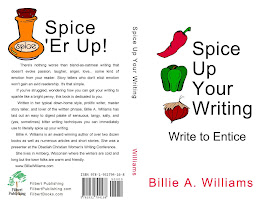
I’m sure if you’ve read any books on how to write you’ve run into this phrase or something similar “Write what you love to read.”
Okay, someone will say, “I don’t have time to read. I want to be a writer.” My question is then; would you like to be as prolific a writer as Stephen King, Mary Higgins Clark, or even Nora Roberts? Would you like to gather fans like Janet Evanovich or Rita Mae Brown? They all will tell you, “if you don’t have time to READ you don’t have time to WRITE. If you don’t read you can’t write.” Reading what others write in a genre that you would like to write in, is like working toward a degree at the University level. You see how your favorite authors do it. You see how the best sellers among them got to be ‘Best Sellers.’
Researching markets to sell your writing to is useless if you don’t know the subtleties of writing for that market. What are the constructs? What do those readers expect in their books? After all it is your readers that you need to write for, not some publisher although eventually you need to please that publisher. The route to that publisher is still—what do his readers want? Know that genre and know it well and you will find a publisher.
Reading a Janet Elaine Smith novel – where the reader always is guaranteed a happy ending is quite different than reading a Stephen King novel – where you learn to expect the unexpected. Smith’s novels lean toward humor, though she writes mystery. King’s lean heavily on shock value to grab his readers. Smith turns ordinary into warm, relaxing and fun reading. King turns the ordinary to chaos or terror. You need to know the genre you are writing in, inside and out.
Reading one of my novels – depends greatly on the constructs of mystery and suspense, or in my Young Adult book Watch for the Raven, historical suspense. While the style is suspenseful, it still needed to conform to the young adult genre’s expectations and rules.
Thankfully, when it got to my editors, they found the flaws in my work. Being it was a historical; it also had to follow historical guidelines. You cannot fluff just because the past may be documented by interpretation, you still need to have basic facts that everyone believes to be true, which have been thoroughly researched to support those facts – correct in your novel. I learned that from my editors. Thankfully it wasn’t an angry reader who would never pick up another novel I wrote because this one disappointed her.
If you read those genres you want to write in, you will know what the reader has come to expect from them. Fiction cannot be a lie when it purports to use facts. I learned that lesson in Watch for the Raven and I am very thankful for knowledgeable and exacting editors at Wings ePress for that book being all it could be. That is another reason why taking courses in your chosen genre is an excellent idea. It gives you the framework to support your writing. You can do without the classes if you are good at tearing apart a book and finding its structure. If you can determine where the author uses red herrings and why in a mystery, or how Angela Verdenius, or Bradley James Simpson created their worlds to support their novels and design a formula similar to that you are ahead of the game. How do they make their worlds believable is only one of the many questions you need to answer if you want to write Fantasy or Science Fiction. Reading in those fields will show you the way if you read like a writer looking for the formula.
If you can’t or won’t spend time immersing yourself in the works of writers that you enjoy and want to emulate, how can you expect to come out of the gate as number one or even in the race? The publishing world is looking for the next big seller—they don’t care how long you’ve worked on your novel. They don’t care if you’ve lived it—unless you are a celebrity. What they want is a book in the genre their readers expect but unique from all the others. Here is a big secret – don’t worry about the uniqueness – you already are that. There is only one of you and therefore, no one can write your book—only you. Now all you have to do is cater to the genre rules and guidelines know them and know how you can break them without losing readers and you will get published.
So grab a stack of books by authors you’d love to write like and get busy reading, like a writer reads. If that happens to be mystery/suspense or young adult historical, I hope you will choose my books. Whatever you choose I wish you luck and a best seller. READ ON! WRITE ON!











2 comments:
Wow! Thank you for including me, Billie. I wonder if Stephen King will see it and figure out that there is a different way to do it?? I'm honored to be included in such fine company as the other authors you mention.
Janet Elaine Smith, author
http://www.janetelainesmith.com
Thanks for the nod Billie. =)
Post a Comment